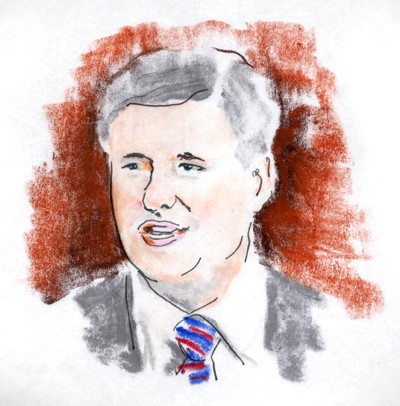Better get used to it
Like it or not, the Harper Conservatives are here to stay
Amid all the false starts, the drama and the stalled policy that has characterized the last two parliamentary sessions, there is one thing that has remained reliable – the strength, strategically and politically, of Stephen Harper.
The Tories have been successful at demeaning the opposition while touting the virtues of their own economic and political agenda. Michael Ignatieff has been cast as a visitor, a “tourist,” who sputters on about a slow response to the recession, while the Conservatives have invested $34 million in advertisements to demonstrate that stimulus money is moving very quickly.
The ads seem to be working. Moreover, the opposition has failed to present any alternative to low taxes and deficit spending.
The Conservative government has racked up a $50 billion deficit this year, but have pledged to eliminate federal red ink in four years without raising taxes. Ignatieff has declared that a Liberal government would neither raise taxes nor cut spending, yet still get the country out of deficit.
The Conservative environmental record is abysmal. And yet Ignatieff, intimidated by the slaying of his predecessor, has claimed support for the Alberta tar sands and put the Green Shift to rest.
Harper has framed the political debate and discussion in this country for the last year and his influence is far-reaching. Last fall, the word “coalition” was a synonym for bipartisan cooperation. The word now connotes an opportunistic overthrow of elected government.
Harper has managed to spin the coalition debacle in such a way that an untimely non-confidence vote is seen as a near coup.
This fall, Ignatieff declared the end of the Harper regime. The Conservatives, rather than allow for an election Canadians don’t want, gave that responsibility to the opposition. Harper decried another election as wasteful and unnecessary. He was met with a surge in the polls and the temporary support of the NDP who, terrified of a fall campaign, granted support to the government after meager Tory concessions.
The Conservatives have proven to be a reactive rather than progressive force. Harper is wise enough to understand that a huge overhaul of the political system, towards social conservatism or constitutional reform, would cause his demise. He understands that prudence is key in a minority government.
It is evident in the prime minister’s approach to everything from policy to scandal.
When first elected in 2006, the Harper government proposed a motion to hold Senate elections, and another to introduce Senate term limits. Much of this legislation was introduced in the upper chamber where it continues to be delayed. Harper knew full well this would happen. Introducing reform in the red chamber was a legislative demonstration of the Senate’s ineptitude.
As 2010 approaches, the Conservatives are now in position to have a majority in the Senate, followed presumably by meaningful reform.
When Brian Mulroney faced scrutiny into his business dealings with lobbyist Karlheinz Schrieber, Harper saw that leniency would be more detrimental than harshness. He banned his caucus from speaking to Mulroney and put the former prime minister through an exhaustive judicial inquiry and days of interrogation by a partisan-fueled parliamentary committee. All this to avoid any connection between his government and past mistakes.
Harper presides over a high-casualty war in Afghanistan that can’t be won. He has steadfastly stood by the 2011 withdrawal date recommended by Liberal John Manley. As a result, no one says much about Canada in Afghanistan.
The prime minister has run the largest deficit in Canadian history, has a poor environmental record and has faced scandal, parliamentary crisis and charges of hypocrisy. Despite this, he continues relatively unscathed.
Stephen Harper is here to stay.
Ethan Cabel is a beat reporter with The Uniter.
Published in Volume 64, Number 8 of The Uniter (October 22, 2009)







